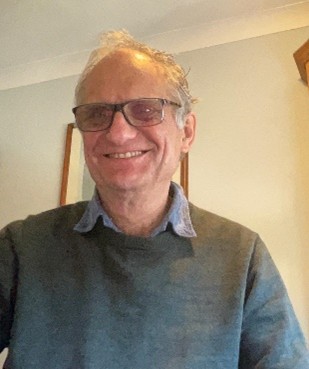

This workshop will be 2 hours towards your CPD, and you will receive a certificate of attendance shortly after the workshop.
This workshop will be recorded, and recordings will be available for up to 3 months after the live broadcast for you to watch in your own time.
All timings are according to UK GMT
10th December 2025
17.00 - 19.00 (2 hours)
This workshop is priced at a flat rate of £50.00
We know that there are many barriers to attending workshops, so for those who may be unable to pay the flat rate we offer discounted and supported places - please contact hello@compassionatemind.co.uk
Dissociation is a universal adaptive defense for surviving overwhelming stress and trauma. Trauma survivors, especially those with dissociative symptoms and disorders (including Dissociative Identity Disorder, Other Specified Dissociative Disorder, and complex PTSD) often present with a wide array of symptoms such as depression, mood swings, and anxiety. Beneath these presenting symptoms often lie crucial, hidden experiences associated with dissociation, including profound self-alienation, conflicting emotions, pervasive inner fragmentation, and self-criticism, which make verbalizing their feelings challenging. Effectively treating post-traumatic dissociation necessitates specialized approaches to uncover, understand, and address these hidden dissociative processes and their underlying parts of self.
Developed by Professor Paul Gilbert, Compassion-Focused Therapy (CFT) helps individuals cultivate a compassionate self that facilitates acceptance, safety, and integration, ultimately reducing inner suffering. CFT emphasizes the inherent "multiplicity of our minds," recognizing that we often experience diverse "parts of self" with distressing conflicting emotions, thoughts, and motives (Gilbert, 2010). Developing a compassionate self is crucial for navigating this internal complexity and addressing challenging internal patterns, and is essential for the treatment of trauma survivors.
This presentation introduces the SCID-D Interview, considered the gold standard for assessing dissociative symptoms and disorders in adolescents and adults. Grounded in over four decades of global research, the SCID-D offers a unique interactive semi-structured framework based on Dr. Steinberg's Five-Component Model of Dissociation. The SCID-D's open-ended, gentle, and nuanced questions promote client exploration of their inner feelings and experiences. Furthermore, its proven, transdiagnostic interview techniques systematically identify five universal dissociative components, fostering a deeper understanding of the person's inner world and facilitating client mentalization, insight, and healing.
Since many clients with dissociative symptoms often go undetected, early SCID-D assessment is vital. The SCID-D provides clinicians with a step-by-step method to help clients explore and understand the "complex facets of our multi-minds" (Gilbert, 2010), a core concept of CFT. The SCID-D’s non-pathologizing assessment is consistent with CFT’s approach and empowers Compassion Focused therapists to effectively reduce inner conflicts between dissociative parts, thereby optimizing trauma-informed treatment.
By integrating SCID-D assessment with core CFT techniques, clinicians can detect previously hidden dissociation, significantly reduce misdiagnosis and prevent years of ineffective treatment. This presentation will introduce the SCID-D’s Five Component Model of Dissociation, which can guide clinicians in identifying core internal conflicts between varied parts of self in trauma-related disorders, leading to more precise, compassionate, and effective therapeutic outcomes.
· Identify the challenges associated with recognizing post-traumatic dissociative symptoms and disorders.
· Learn about the empirically proven SCID-D Five-Component Model of Dissociation and its five universal components that identify hidden dissociative processes underlying trauma-related conditions.
· Be introduced to the SCID-D Interview: Explore, through video demonstrations, how this practical, evidence-based therapeutic tool can be integrated into CFT practice.
· Discover how integrating the SCID-D Interview and CFT's approach can foster deeper client insight into their internal world (multiplicity of mind) and enhance connection to their compassionate self, guiding treatment and improving outcomes.
Online via Zoom
Gilbert P: Compassion Focused Therapy, Routlege, London, 2010
Steinberg M., Schnall M.: The Stranger in the Mirror: Dissociation—The Hidden Epidemic. Harper Collins, New York, 2010
The SCID-D: Dissociation Assessment in Therapy, Forensics, and Research. American Psychiatric Association Publishing, Washington, DC, 2023
Steinberg M.: Interviewer’s Guide to the Structured Clinical Interview for DSM-IV Dissociative Disorders (SCID-D). American Psychiatric Press, Washington, DC, 1993
Steinberg M.: Handbook for the Assessment of Dissociation: A Clinical Guide. American Psychiatric Press, Washington, DC, 1995
Steinberg M.: Advances in the clinical assessment of dissociation: the SCID-D-R. Bulletin of the Menninger Clinic 64(2):146–163, 2000
.svg)
%20reverse.svg)



.svg)
Yes, towards the bottom of the page under the 'prices' section you will find a link to download a booking form for this workshop. Please fill this in and email to Binita.Shah@compassionatemind.co.uk
Yes, this workshop will be recorded on zoom. Once the workshop has finished all delegates will receive a follow-up email with the links to view these along with any extra resources. These will be available to view for around 3 months post-event. The recordings are edited, so will be made available roughly a week after the workshop has finished.
All attendees will received a certificate upon completion of the course. This will be emailed to you, so please ensure that your details are correct on registration.
Our staff will take a register on each day of the workshop and any non-attendees will not receive a certificate. If you are unable to attend for any reason, please get in touch at hello@compassionatemind.co.uk
%20reverse.svg)
All places booked for our event, must be paid for prior to attending the event unless pre-agreed with management. Please note that we cannot confirm your place until we have received payment.
Should you be unable to attend the event, please contact our admin team as soon as possible via hello@compassionatemind.co.uk. Refunds, less the Eventbrite administration fee, will be made if cancellations are received in writing up to one month before the event. Any cancellations received after this time will not be eligible for a refund, although we will consider exceptional circumstances. While refunds for failure to attend cannot be made, you can transfer your event fee to a future event that will take place within 12 months of your booking without an additional penalty.
Please note that information about the event and venue are subject to change and cancellation. Occasionally, an event may have to be cancelled or postponed. We will endeavour to inform you of any changes and cancellations as soon as possible via email. We cannot take responsibility for any resulting costs you may incur for travel, accommodation, any other related goods or service or other compensation should an event cancellation occur.
For all face-to-face events, lunch provided at the event will be vegetarian and will include eggs, but no meat or fish (though vegan options will also be made available). However, please advise us of any dietary requirements in the notes section whilst booking online and we will do our best to accommodate your request.
